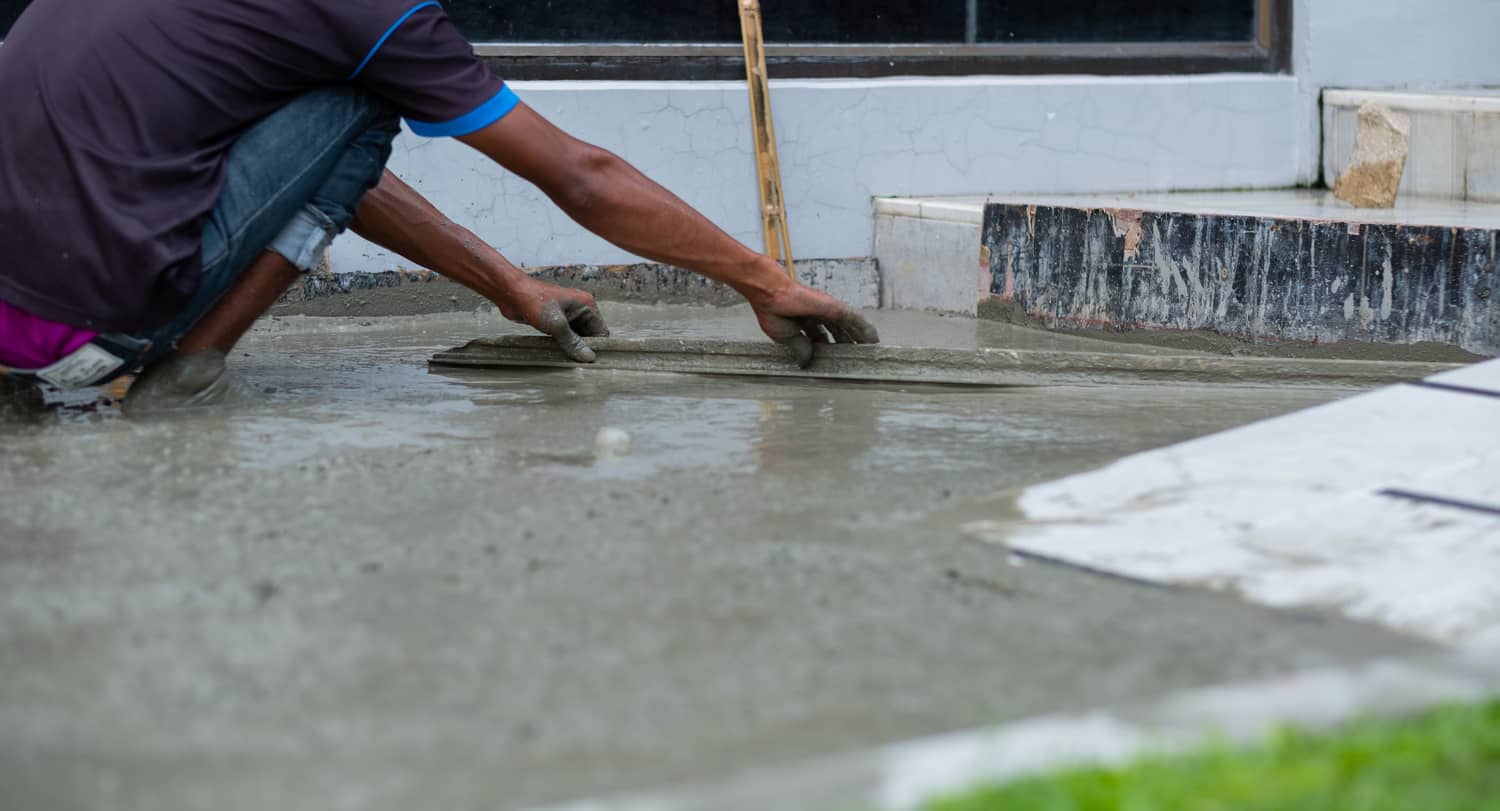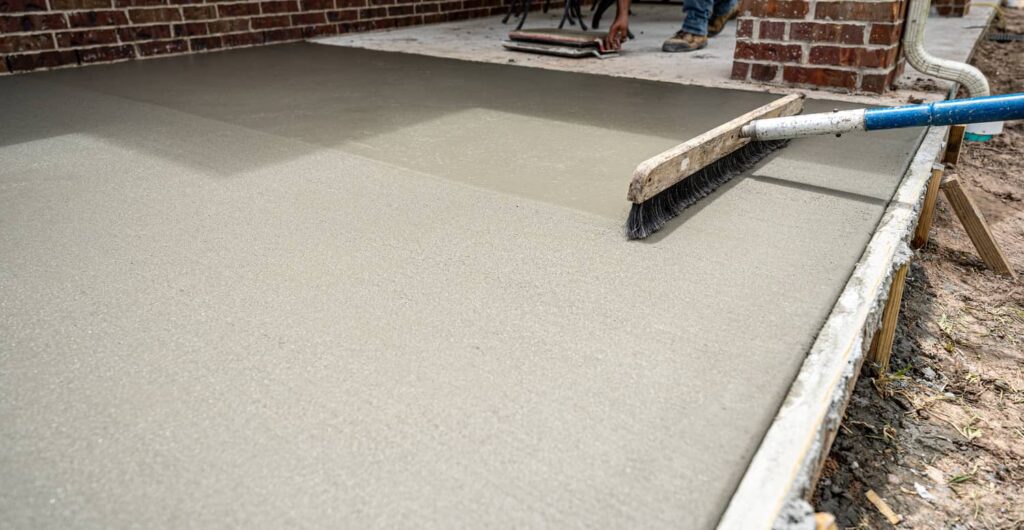
When it comes to concrete, there is a variety of dos and don’ts. Most homeowners do not pay attention to concrete pours. In fact, during the home building process, the main concrete pour involves your foundation. Luckily, the foundation must be inspected before the builder can move on to the next phase of building your home. If you are building a concrete patio around your swimming pool or as an addition to your home, you will want to know when the best times to pour concrete are. Can you pour concrete in the rain? While the short answer is “yes”, there are a few things to note before embarking on a concrete project in the rain. Let’s take a look below at what you need to know!
What Would Happen?
If you pour concrete in the rain, it can sometimes result in major damage. Be sure to check the weather forecast before you start. You wouldn’t want to start pouring concrete if severe weather is in the area. Be sure to check the layout of the project. Ensure that any downspouts that funnel water away from the home are not going to funnel water onto your concrete pour project.
Also, if the rainfall is light, you can cover the project with plastic sheets or tarps as you work. Once the project is completed, you will cover the concrete so that it can properly be cured. Let’s take a look below at some ways concrete can be affected due to rain.
- Craze cracking – If you can see hairline cracks beginning to form as the concrete cures, this is a result of too much moisture. Over time, the cracks will get bigger.
- Surface scaling – If you notice that the surface of the concrete has now started to peel away and become chopped up, this is due to rain. Additionally, the surface colors will become varied.
- Dusting – If the surface of the concrete is dusty after it has dried, this is due to rain. Consider conducting a scratch test to ensure the strength of the concrete surface is good.

What Do I Do If It Rains?
Before starting any concrete project, check the weather conditions. Also, note that some times of the year might be better for a concrete pour than other times. Try to plan. Let’s take a look below at what we can do while pouring concrete if it is raining.
- Avoid the push – Refrain from pushing any rainwater into the fresh concrete. This will create bigger issues.
- Dry cement mix – Never throw more dry cement onto the surface water in the hope that it soaks it up. This completely diminishes the outer layer of the concrete surface.
- Push the water – As you are working in the rain, push the excess water off the edges of your concrete. Use a float or a hose to push all excess water off the edges.
How Much Does It Cost?
If you are looking to get a concrete slab poured, the national average ranges from $5.50 to $9.50 per square foot. Depending on the size of the pour and the location of the pour will determine how much the project will end up costing. Keep in mind that the contractors’ materials and labor can change your costs as well.
Other Recommended Maintenance
Maintaining your concrete extends beyond the pouring process. To ensure longevity, consider waterproofing measures such as sealing crawl spaces to prevent moisture buildup. A vapor barrier is also critical to guard against moisture seeping into concrete from the ground.
Additionally, ensure your home’s gutter downspouts are directing water away from concrete areas to avoid unnecessary water exposure that could weaken the structure. Regular checks and proactive maintenance are key to preserving the integrity of your concrete against the elements.

When Do I Call A Professional?
The moment that you decide about a concrete project is the moment that you should call a professional. Not only is it a labor-intensive project, but it also requires specific building codes to be followed. Consider hiring your local home inspection team to assist with inspecting all areas around your home. This allows you to get a solid footing for how your project should turn out. Also, they can refer you to a reputable professional concrete contractor.
Conclusion
Pouring a patio, sidewalk, driveway, or even a foundation pad for a new home can be a challenge. In many cases, you have no idea when the weather is going to go from beautiful to full-on rain storms. Although we like to think we have the weather updates all under wraps, things can change in an instant. Be sure to hire the right concrete contractor for your project.
Hire a reputable contractor to pour concrete in the rain who is known for their experience. Also, reach out to your local home inspection team to ensure that the project is done in the right location and meets your home’s needs. Reach out to All Coast Home Inspections for a full home inspection in Houston, TX.


